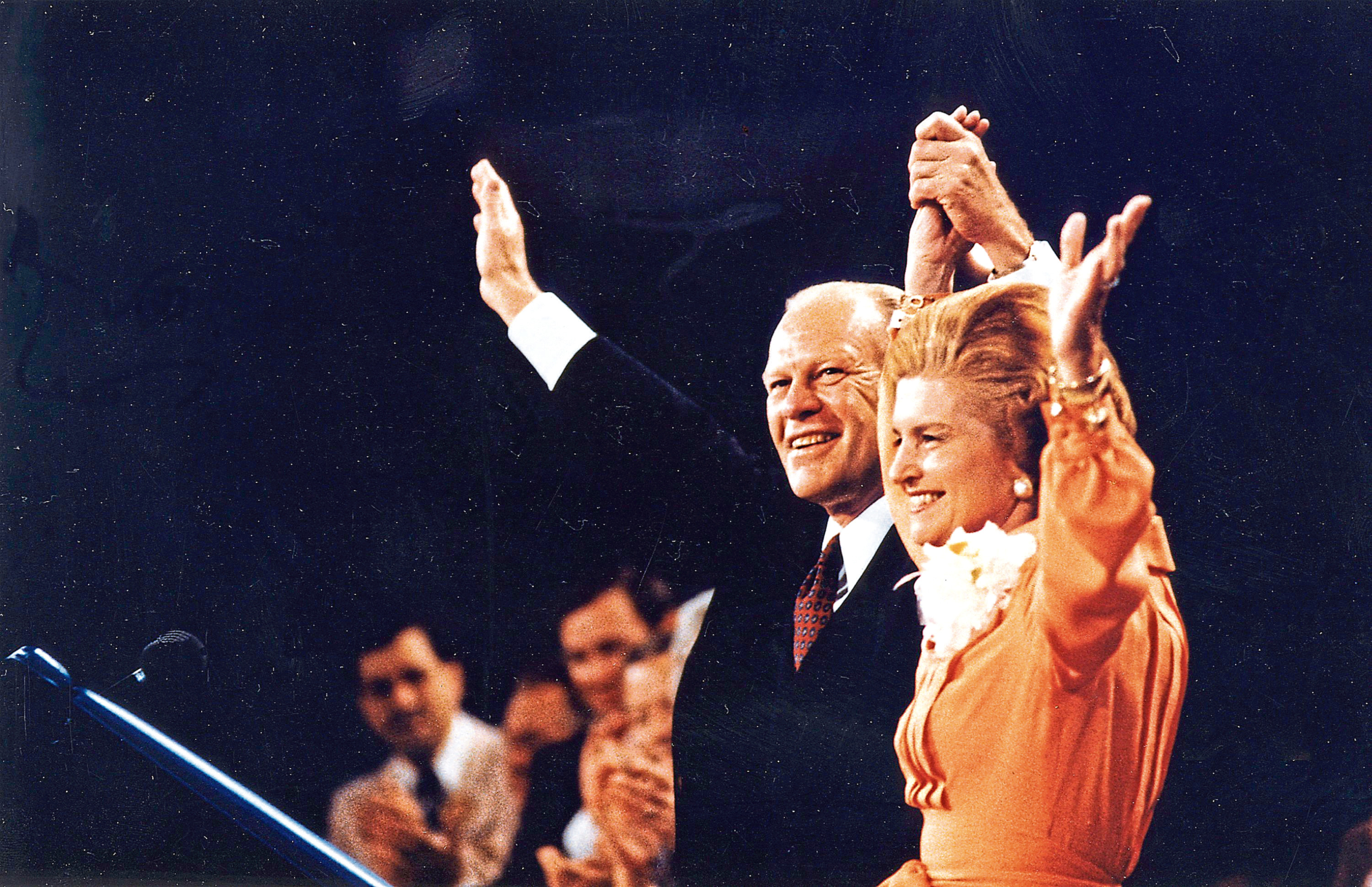
NANCY Reagan founded the Just Say No anti-drug campaign, Hillary Clinton was intimately involved in her husband Bill’s healthcare reform plans, and Michelle Obama campaigned tirelessly for military families and against childhood obesity.
But Betty Ford was the first FLOTUS to be openly politically active, especially in the area of women’s rights.
And that’s despite Ford serving as first lady only from August, 1974, until January, 1977, after her husband Gerald took office upon the disgraced President Nixon’s resignation.
Put it this way, The New York Times said: “Mrs Ford’s impact on American culture may be far wider and more lasting than that of her husband, who served a mere 896 days, much of it spent trying to restore the dignity of the office of president.”
One of the most candid first ladies in history, she would comment on every “hot-button” issue of the day including feminism, equal pay, sex, drugs, abortion – she was pro-choice – and gun control.
Ford was particularly noted for raising breast cancer awareness following her mastectomy in 1974, and of addiction when she announced her long-running battle with alcohol and substance abuse.
Born Elizabeth Anne Bloomer in Chicago, 1918 but always known as Betty, Ford was a fashion model and dancer before taking a job in a department store to finance her own dance group while also teaching dance.
She married William G Warren, a salesman who was also an alcoholic but just after she filed for divorce, he went into a coma.
After nursing him back to health for two years, she finally divorced Warren in 1947 and the following year married lawyer and Second World War US Navy veteran Gerald R. Ford who was then campaigning for the first of his 13 terms as a member of the US House of Representatives, basically the American House of Commons.
The two were devoted, becoming one of the more openly affectionate first couples, but Gerald did ask to delay the wedding until just before the election as he was running for Congress and wasn’t sure what the voters would make of him marrying a divorced ex-dancer.
Betty made an immediate impact when she became first lady, doing “the bump” dance down the White House corridors and chatting on her CB radio using the handle “First Mama”.
She was a contradiction, The New York Times describing her as “a housewife who argued passionately for equal rights for women, a mother of four who mused about drugs, abortion and premarital sex”.
In a 1975 interview she said she’d been asked just about everything apart from how often she and the president had sex: “And if they’d asked me that I would have told them”, adding that her response would be “as often as possible”.
She was open about the benefits of psychiatric treatment and spoke understandingly about marijuana use, premarital sex and unfaithfulness.
While Time magazine named her Woman Of The Year in 1975 and called her the country’s ‘Fighting First Lady’, some conservative Republicans called her ‘No Lady’ and demanded she somehow resign.
But her approval rating was 75% and she later said: “I would give my life to have Gerry have my poll numbers.”
Weeks after becoming FOTUS, Ford underwent a mastectomy and decided to be open about her breast cancer as: “There has been so much cover-up during Watergate, we wanted to make sure there would be no cover-up during the Ford administration.”
This raised the visibility of a disease Americans had previously been reluctant to talk about and the spike in women self-examining after she went public led to an increase in reported cases of breast cancer known as ‘the Betty Ford blip’.
A year after the Fords left the White House, the family staged an intervention and forced Betty to confront her alcoholism and addiction to opioid painkillers which had first been prescribed in the early 60s for a pinched nerve.
She later wrote in her memoir: “I liked alcohol. It made me feel warm.
“And I loved pills. They took away my tension and my pain.” After her recovery, she established the Betty Ford Centre for the treatment of chemical dependency, remaining on the board for the rest of her life.
As one of her successors as First Lady, Barbara Bush, said, Ford “transformed her pain into something great for common good.
“Because she suffered, there will be more healing. Because of her grief, there will be more joy.”
After leaving the White House, Ford remained a fierce lobbyist for the Equal Rights Amendment, a proposed amendment to the US Constitution designed to guarantee equal legal rights for all citizens regardless of sex, which has only recently been ratified by two states, Nevada and Illinois.
In 1991, she was given the Presidential Medal of Freedom – the US equivalent of a knighthood – by President George H W Bush.
Betty Ford died of natural causes on July 8, 2011 aged 93.


Enjoy the convenience of having The Sunday Post delivered as a digital ePaper straight to your smartphone, tablet or computer.
Subscribe for only £5.49 a month and enjoy all the benefits of the printed paper as a digital replica.
Subscribe